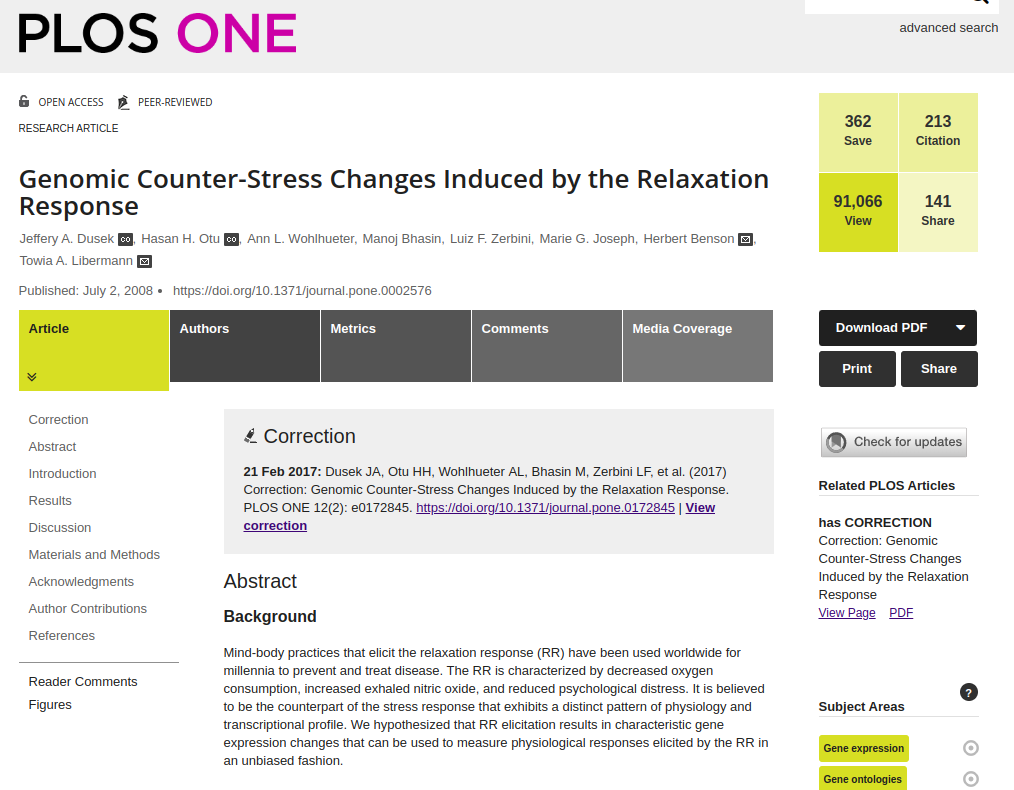Publication
PLOS ONE
Abstract
Mind-body practices that elicit the relaxation response (RR) have been used worldwide for millennia to prevent and treat disease. The RR is characterized by decreased oxygen consumption, increased exhaled nitric oxide, and reduced psychological distress. It is believed to be the counterpart of the stress response that exhibits a distinct pattern of physiology and transcriptional profile. We hypothesized that RR elicitation results in characteristic gene expression changes that can be used to measure physiological responses elicited by the RR in an unbiased fashion.
Web and Email Links
Related Listings
Journal
Global Advances in Integrative Medicine and Health
Mind–body medicine is an evidence-based approach to health and healing that focuses on interactions between the mind, body, and behavior. It encompasses a wide range of interventions that are similar yet different in meaningful ways. Mindfulness and relaxation practices are 2 mind–body techniques that have similarities and differences; however, these techniques are often used or discussed interchangeably, such that the differences between them become obscured. A greater understanding […]
Journal
Complementary Therapies in Medicine
Background Transcendental meditation (TM) is a stress reduction technique that can potentially lower blood pressure (BP) safely. The American Heart Association recommends that TM may be considered in clinical practice. Objective To provide an overview of all systematic reviews and meta-analyses of TM on BP for evidence-informed clinical decision making. Method Systematic searches of PubMed, EBSCOhost, Cochrane Library, Web of Science, Embase, and PsycINFO for all systematic rev […]
Journal
Am. J. Public Health
An experiment conducted at the corporate offices of a manufacturing firm investigated the effects of daily relaxation breaks on five self-reported measures of health, performance, and well-being. For 12 weeks, 126 volunteers filled out daily records and reported bi-weekly for additional measurements. After four weeks of baseline monitoring, they were divided randomly into three groups: Group A was taught a technique for producing the relaxation response; Group B was instructed to sit […]

